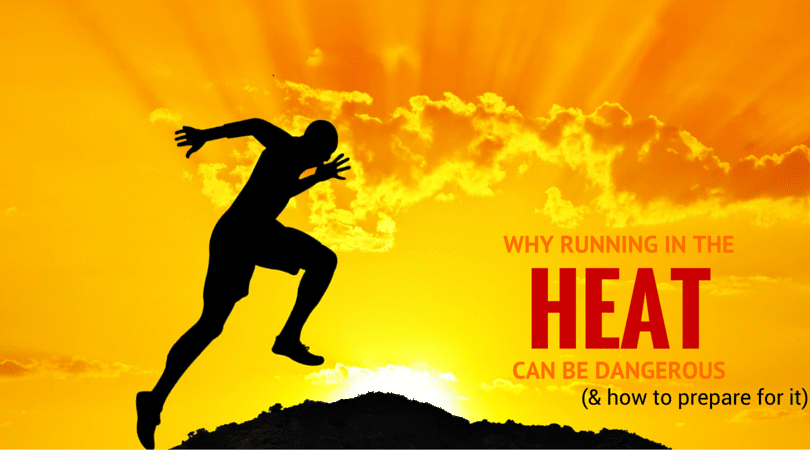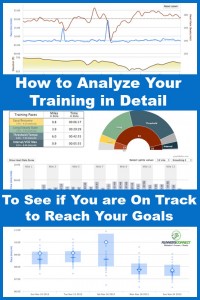The summer is almost upon us and the temperatures are rising.
That means it’s time for the typical barrage of articles about how drinking water is important (oh, really?!), wearing light-colored clothing is the best summer running attire (gee, I thought I would wear my new thermal layer today?!), and to be careful when running in the sun (well, there goes my tan).
All kidding aside, running in the summer heat presents its own series of challenges, but Running Temperature Calculator I’ve created is hopefully a little more practical.
We do also have those articles on how to calculate your exact hydration needs, what you need to know about heat stroke during the summer, how sunscreen affects you while running, and nutrition tips to stay healthy while on your summer vacation.
Back to today:

What do I Need to be Aware of During Summer Training Runs?
The human body is designed to handle cold temperatures efficiently, especially when you’re exercising.
Running in the cold is even easier nowadays because of the latest advances in running clothes.
On the other hand, once you’re down to the bare minimum of clothing, you can’t dress for the heat and unfortunately, our bodies are ill-equipped to handle running in hot and humid temperatures.
Here’s the deal:
The two biggest problems you face while running in the heat are the increase in your core body temperature and dehydration.
Now:
Your normal body temperature is 98.6 degrees Fahrenheit.
Exercising, even in cold temperatures, naturally raises the core body temperature. At first, this rise in temperature aids performance by increasing blood flow to the working muscles – hence, the importance of warming-up before hard workouts and races.
However, once your internal body temperature gets above 102 degrees you start to experience a significant drop in performance.
What happens if my body temperature keeps rising?
At 102 degrees, your body can no longer effectively cool itself and you must start spending more of you precious energy to keep things cool. Primarily, your body starts diverting blood to the skin to help keep it cool, as opposed to focusing your running performance.
It get’s worse:
he longer you’re running in the heat, the more sweat you lose in attempt to keep yourself cool. This speeds-up the dehydration process and consequently, you start to slow down.
Most runners have experienced the ill effects of running on a hot summer day.
While there are tricks and precautions that help keep us safe and running somewhat fast, there will inevitably be a negative impact on performance when the temperatures get hot.
With the help of legendary running coach Jack Daniels and his temperature tables, I’ve created an online temperature calculator that will help you plan and account for exceedingly hot temperatures.
You can use the calculator on workout days to adjust your assigned pace to give you a more accurate idea of how you fast you should be running based on the heat and its effects on the body.
Likewise, if you’ve just finished a race in rather unpleasant summer conditions, you can plug in your race time and see how many seconds you lost due to the heat.
This will help you identify whether heat was the main cause of your less than stellar time or a training error that you need to fix.
RunnersConnect Bonus
Download your FREE Temperature Calculator now.
It will help estimate how much your times will be impacted by hot weather. Find out exactly how much to adjust your summer workout and race paces.







5 Responses
Interesting tool. May I report a bug here? When I enter the distance “Marathon” and the time “3:40:30” the paces don’t change and the times seem to ignore the hours. Thanks!
Hi Rob,
Thanks for the comment and for picking up on the bug. I think it has to do with the way the table is displaying, I will check into it tonight and hopefully have it fixed by tomorrow.
I appreciate you reading. Happy Running!
Jeff
Ok, it should be fixed. Thanks for letting me know about the problem
Is there a calculator that also factors in humidity?
I can consistently see my pace decrease as dew point increases.
Hi Nicole, actually we do have a calculator, here it is https://runnersconnect.net/training/tools/temperature-calculator/ Hope this helps! Can we help with anything else?